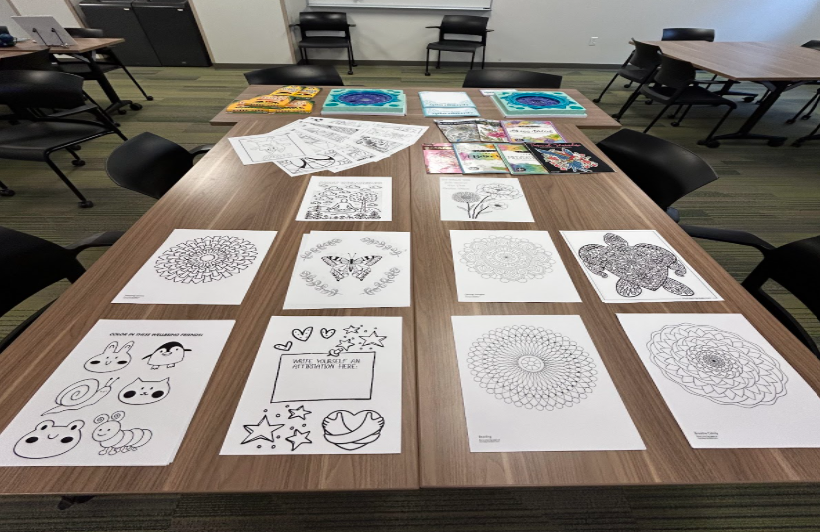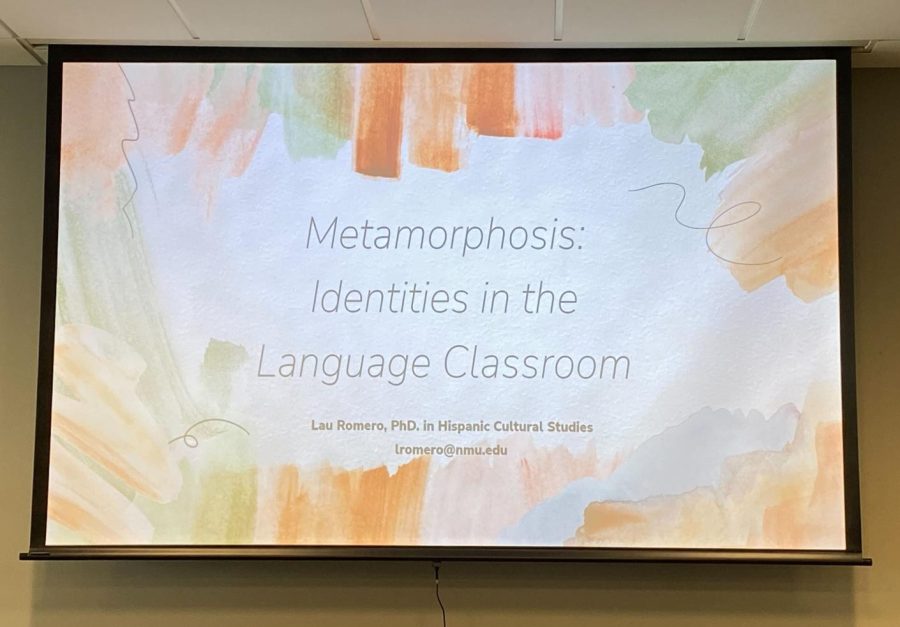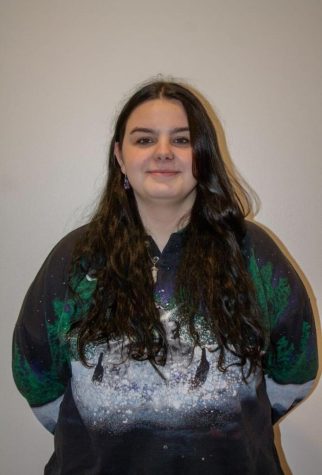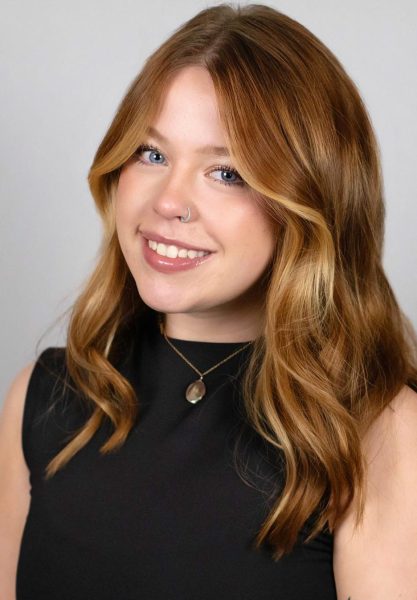UNITED Conference addresses diversity, equity, inclusion
METAMORPHOSIS – NMU hosted the UNITED Conference with a number of different presenters. Lau Romero presented “Metamorphosis: Identities in the Language Classroom” and addressed the lack of LGBTQ+ and POC language in the classroom.
March 23, 2023
NMU hosted the 16th annual UNITED Conference with the help of the Student Equity and Engagement Center (SEEC) on Monday, March 20. The conference was held from 8 a.m. to 9 p.m. in the Northern Center with the theme, “Writing Our Own Stories.”
The UNITED Conference is hosted each year to engage learning about topics dealing with diversity, equity and inclusion. This year’s conference celebrated the 10th anniversary of NMU’s Diversity Common Reader Program. The programs featured at the event included keynote speakers, workshops, panel discussions and more. Speakers at the event included professors, students and community members.
A number of talks were given by NMU faculty members, including Spanish instructor Lau Romero who gave a talk titled “Metamorphosis: Identities in the Language Classroom.” Romero’s talk covered how to include LGBTQ+ identities in a classroom setting. The talk acknowledged that the necessary change is ongoing and that there is no one formula for change due to the fact that everyone has different needs. To address ways in which these changes can occur in the classroom, Romero, who is nonbinary, mentioned that they are open about their pronouns in their classroom.
Events like the UNITED Conference are valuable spaces for open discussion between professors and students, Romero said.
“The more they can be exposed to ideas and to people who differ from what they are used to, the better,” Romero said. “In my opinion, this is one of the foundational exercises to develop critical thinking skills, opening up new areas of knowledge and interest.”
Some speakers came from out of state to attend the conference. Kansas State University Department of English professor Abby Knoblauch gave a talk titled “Fat Pedagogy: Challenging Anti-Fatness in Classroom Practices.” Knoblauch’s talk covered the empowerment of the word “fat” and discussed the use of adjectives like “flabby” when discussing students’ work in academic settings. The talk also covered the falsehood of diet culture and how assignments in class, such as statistics, include obesity in their assignment for no specific reason.
Events and conferences like UNITED draw in particular communities, Knoblauch said.
“There’s something so wonderful and affirming, and I think necessary, about having people from those communities,” Knoblauch said. “Whether it be LGBTQIA+ communities in a place that is not designated solely for that [or other communities], I think there’s something really necessary about that and reminds you that there’s a place for you at a university.”
Some talks were given at the same time, located in separate rooms. This schedule offered a buffet style of attending talks and workshops, allowing attendees and participants the choice to go to certain talks that may interest them more than others. Presenters offered a short question and answer segment at the end of their presentations when given the time, allowing for attendees to learn more.
The UNITED Conference was open to the public, no tickets required. Presentations saw a mix of students, faculty members and community members attending the conference and jumping from presentation to presentation to learn about what the presenters had to share.




























